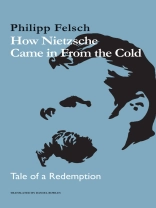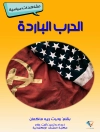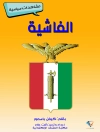Nietzsche’s reputation, like much of Europe, lay in ruins in 1945. Giving a platform to a philosopher venerated by the Nazis was not an attractive prospect for Germans eager to cast off Hitler’s shadow. It was only when two ambitious antifascist Italians, Giorgio Colli and Mazzino Montinari, began to comb through the archives that anyone warmed to the idea of rehabilitating Nietzsche as a major European philosopher.
Their goal was to interpret Nietzsche’s writings in a new way and free them from the posthumous falsification of his work. The problem was that 10, 000 barely legible pages were housed behind the Iron Curtain in the German Democratic Republic, where Nietzsche had been officially designated an enemy of the state. In 1961, Montinari moved from Tuscany to the home of actually existing socialism to decode the “real” Nietzsche under the watchful eyes of the Stasi. But he and Colli would soon realize that the French philosophers making use of their edition were questioning the idea of the authentic text and of truth itself.
Felsch retraces the journey of the two Italian editors and their edition, telling a gripping and unlikely story of how one of Europe’s most controversial philosophers was resurrected from the baleful clutch of the Nazis and transformed into an icon of postmodern thought.
表中的内容
List of Illustrations
Acknowledgments
The Spoilsports: Introduction
1. Beyond the Gothic Line: Lucca 1943–44
The Chosen Few
Standard Positions of Nietzsche Reception
Seduction of Youth
The Blue Light
Magic of Letters
The School of Higher Ignorance
2. Painstaking Care and Class Warfare: Pisa 1948
On the Joy of Being a Communist
Comrade Job
Le goût de l’archive
Everyone Else’s Nietzsche
Academics in the War of Position
Travels in Germany
Drinking, Smoking, Reading
3. Operation Nietzsche: Florence 1958
Off the Beaten Track
Beauty and Horror
The Other Library
Crossing over the Abyss
Dangerous Papers
The Italian Job
4. Over the Wall and into the Desert: Weimar 1961
No Suspicious Traces
The Air in Weimar
The Craft of Reading
Nietzsche Is a Disease
The Knight of the Woeful Figure
The Politics of Facts
Down with the Philosophers!
5. Waiting for Foucault: Cerisy-la-Salle 1972
Alone Against the Nietzsche Mafia
Against Interpretation
Watching TV in Reinhardsbrunn
The Ostracized Thinker
Nietzsche’s Dirty Secret
Death of an Author
Quote Unquote
6. Burn After Reading: Berlin 1985
Anarchy of Atoms
The Red Brigades of Textual Criticism
Nietzsche in Paperback
The Great Conspiracy
Philology Degree Zero
The Ring of Being
Notes
Bibliography
Index
关于作者
Philipp Felsch is Professor of Cultural History at Humboldt University, Berlin.












